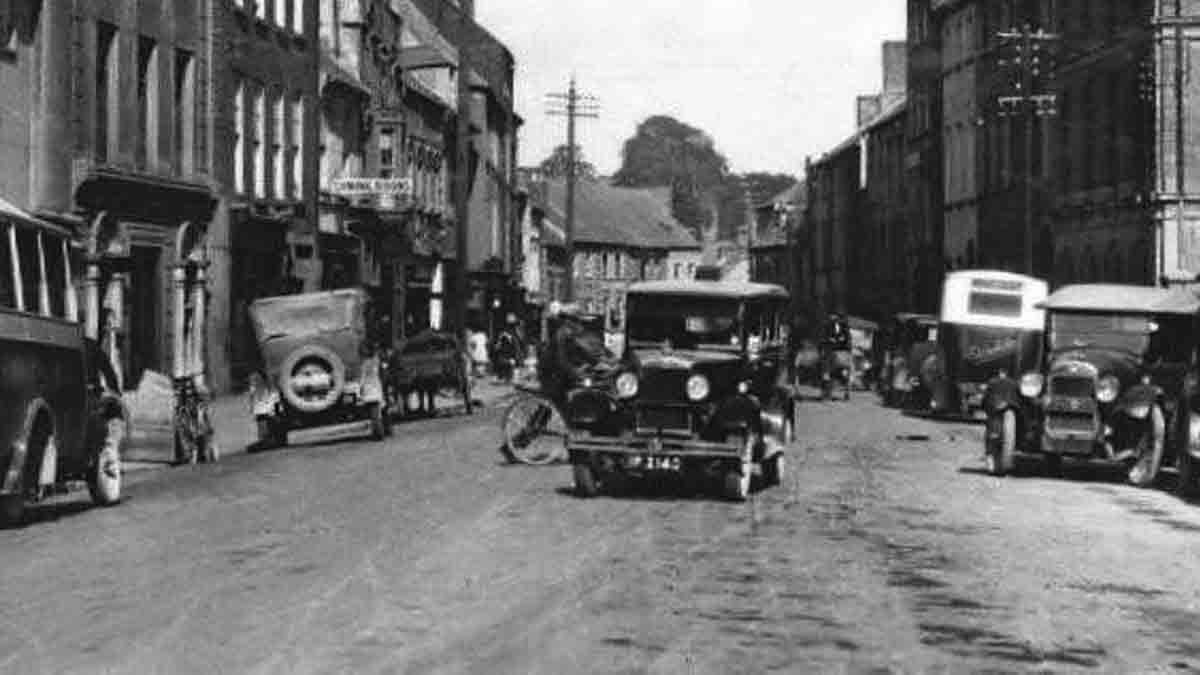BY JOHN FITZGERALD
PART TWO
Callan teenagers Sean Holden and Seamus O’ Brien watched from different vantage-points as the ball was thrown in for the 1939 Senior Hurling All-Ireland between Cork and Kilkenny and the two teams appeared on the pitch.
Seamus felt the sky coming to earth as storm clouds gathered, but neither he nor Sean gave a thought to the big historical events in motion elsewhere, with the world hurtling towards conflict on a epic scale.
The game got under way. The two teams excelled, and it looked as if they might hold each other to a draw, so close was the scoring. Then the heavens opened. Day turned to virtual night, as a malevolent sky seemed about to fall to earth.
A ferocious thunderstorm erupted, interspersed with continuous flashes of lightning. Seamus and his pal Sean were drenched to the skin, shivering and gnashing their teeth as the game continued unabated.
Behind him, Seamus heard dark murmurings. War had been declared, an elderly man rasped to his friend. “Is that right”? the second fan quipped, “Well, jeepers I hope they don’t call off the feckin’ match on the strength of that!”
At the mercy of the elements, Seamus wondered nervously what the rumours were about. War…? Who was fighting whom, and where?
He imagined that Dublin might be under siege at that very moment, with bombs falling everywhere, except on Croke Park, which he supposed might have been excluded under some agreement on account of its special status in the heritage of the nation.
From his vantage point in the Hogan stand, Sean Holden viewed the magnificent battle of wits and brawn with mixed feelings. He nurtured similar broodings to those preoccupying Seamus.
The boy who was destined to transform forever the social and economic fortunes of Callan was in the grip of All-Ireland fervour, his vociferous howling of support and reprimand part of the mammoth wave of passion sweeping over the Gaelic Athletic sporting arena. But he had a gut feeling that something bleak and ominous was unfolding.
On the pitch, the game was reaching a dramatic climax. Croke Park seemed as dark and shadowy as the Callan cinema…not the Gaiety, which hadn’t opened yet, but the smaller one that preceded it. Fans depended on the flashes of lightning to illuminate the scene.
With the sides level, Jimmy Kelly sent the ball hurtling over the bar and the final whistle blew. Kilkenny had triumphed. Talk of war was quickly forgotten as the fans went wild; sending up a cheer that Seamus thought must have pierced the black clouds and maybe even the veil that separated Heaven from earth.
He noticed too a rare sight that has been recalled in many an historical and sporting review: The rain had washed away the bright red dye from some of the Cork jerseys.
On the train back to Kilkenny, passengers mixed commentary about the match with forebodings and jokes concerning the likely consequences of war in Europe. Some speculated that the Germans would drop poison gas from aircraft on the whole of Britain and maybe Ireland too, “and kill the whole lot of us”.
Others bewailed the plight of Poland, which was that very day being pulverised by German tanks and planes.
An elderly man quipped: “Tis a terror. Kilkenny won the match, and we’re delighted, but someone always has to lose. Cork were beaten today, and Poland will be beaten before long.”
A joker sitting in the carriage alongside Seamus laughed resignedly and moaned: “well, we’ve had the storm, now I suppose we’ll get the troopers!”
(Extract from my book Are we invaded yet?





















